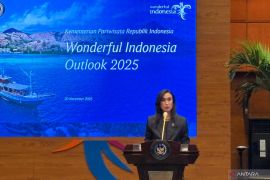The ministry's director for infectious disease prevention and control, Imran Pambudi, said that so far, Indonesia has recorded 777 dengue deaths compared to 894 in 2023.
"If we look here, the most cases are still in West Java. And this year, it is followed by Jakarta, West Java, Central, Java," Pambudi informed during the "Asean Dengue Day 2024" broadcast here on Friday.
The highest fatalities have been witnessed in West Java, followed by Central Java and East Java, he said.
"Jakarta does not appear here. I think that the key to address the issue in Jakarta is when people are found to be infected with dengue, they are immediately admitted (to the hospital), hospitalized. If they are turned away, it is hard to monitor them," he added.
He said that for addressing the dengue issue, the most important factors are government commitment, collaboration, and innovation. The commitment of regional governments is also vital as they are the ones that control mitigation in their area, he noted.
He cited Kupang and Probolinggo as two examples of cities that have successfully suppressed their dengue case rate. Cases have declined in Kupang city since 2022 owing to the mayor's involvement, he said.
The mayor has tasked state civil servants with eradicating mosquito nests every Friday, Pambudi explained.
In Probolinggo city, every Friday, the acting governor goes from one place to another to review how mosquito nest eradication is progressing, he added.
He then reiterated that even though the monthly cycle of the Aedes aegypti, the dengue vector, has passed, the risk of dengue infection will remain high all year long due to the unpredictable weather and temperature pattern.
According to the Meteorology, Climatology, and Geophysics Agency (BMKG), the peak of the dry season will be reached in July and August 2024, and the Aedes aegypti mosquito is known to strike when the temperature is higher.
However, the current rain pattern is unpredictable, for example, it may rain today, but there may be no rain for five days after that, Pambudi said. This is dangerous as puddles that are not replaced can serve as a place for mosquitoes to multiply, he added. (INE)
Related news: Jakarta govt preparing the release of Wolbachia-contained mosquitos
Related news: Yogyakarta dengue cases drop with Wolbachia-infected mosquitoes
Related news: Ministry records 710 dengue cases in first month of 2023
Reporter: Mecca Yumna Ning Prisie
Editor: Atman Ahdiat
Copyright © ANTARA 2024












